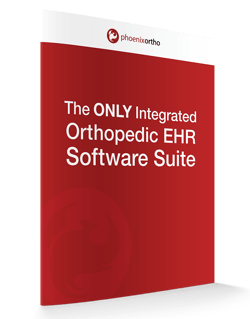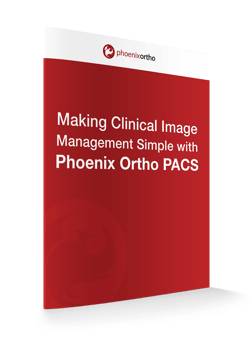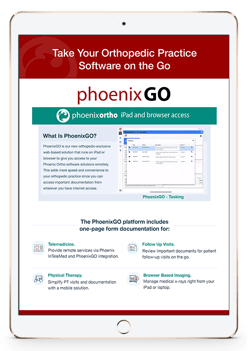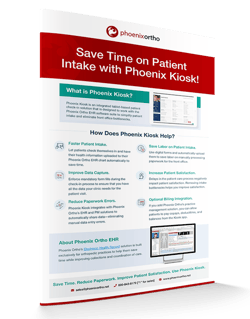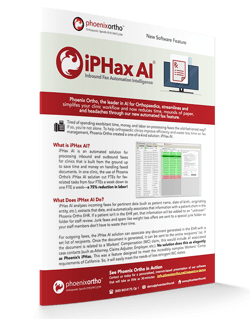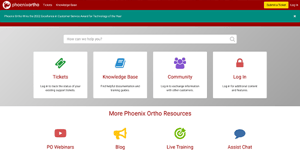Patient data is a very important subject for any kind of medical practice—and orthopedic clinics are no exception. Having the right information on hand during patient visits and when processing post-visit paperwork can make an enormous difference in how quickly you can process claims for services rendered.
Additionally, orthopedic practices need to keep patient data secure to comply with HIPAA guidelines and avoid regulatory penalties.
Having the right data software to enable efficient and consistent patient data management can be a huge plus.
Top Data Management Challenges for Orthopedic Practices
What are some of the biggest data management challenges that your orthopedic practice needs to consider? Here’s a quick list of some of the most common data management issues that clinics might face:
- Ease of Data Access. From orthopedic surgeons to assistants, front office staff, and care coordinators, there are many people in a clinic who might need quick access to a patient’s chart. Data access hurdles can make it harder to both provide care and accurately bill a patient (or payer organization) for services rendered.
- Patient Data Security. HIPAA (the Health Insurance Portability and Accountability Act) requires companies in the healthcare industry to use “reasonable and appropriate administrative, technical, and physical safeguards” to ensure the confidentiality of electronic Protected Health Information (e-PHI). So, data management tools used by clinics need to limit the risk of illicit access or abuse of patient data.
- Capturing Patient Data. Sometimes, patients may not fill in all of the information that they should on their intake forms. For example, they may neglect to mention an allergy, previous medical operation, drug history, or family health history item when filling out a paper form. Finding ways to ensure this information is captured can help orthopedists avoid potential liabilities.
- Managing Different Data Types and Sources. In an orthopedic practice, a physician might need to contend with imaging requests and data, patient notes from various dates, patient billing data, drug history information, other doctors’ treatment plan information, and more. Juggling data management tasks between different types of files and sources can be a major time sink for orthopedists. Also, the added complexity of different data sources can lead to mistakes that cause delays in patient data management or even harm patients. Making or acquiring a unified software resource for handling different data types is a must for ensuring consistency and efficiency in data management.
How Data Software Solutions Can Reduce Overhead for Orthopedics
Finding ways to reduce overhead (or at least improve your profit for what you’re already spending) is a crucial task for any business. Considering how orthopedic physicians often see dozens of patients per day, every little distraction or inefficiency can really add to your overhead.
For example, say that you see 60 patients in one day. If there’s an issue with your data management software that adds just 30 seconds to the time you spend dealing with each patient’s paperwork, that’s half an hour wasted that day—or two and a half hours lost per week (assuming a five-day work week).
If you were to use a different software solution that solved that 30-second problem, you could save that two and a half hours per week—giving you more time to help more patients (or even just go home and spend time with your family)!
Imagine this saved time spread out among multiple orthopedic physicians, assistants, office staff, and administrators in your practice. If ten people could each save two and a half hours per week, that would be like having one extra person on staff for 25 hours a week—without the accompanying overhead for payroll.
Another way that the right data software solutions can help reduce overhead is by minimizing the risk of errors in patient visit data. By using a truly integrated suite of data management solutions that can automatically share all of a patient’s most important information and organize it into a single patient file (from images from the PACS solution to visit notes, patient histories, and more), orthopedic clinics can drastically reduce the risk of manual data entry errors.
This, in turn, helps save hours of time spent trying to manually find the source of an error and fix it.
Increasing ROI by Improving Collections at the Point of Care
Aside from reducing overhead, the right data management solution can help an orthopedic practice improve collections in a couple of ways.
First, with all of the right data from visit notes on hand, a data management solution can greatly simplify the process of setting Evaluation and Management (E & M) codes. This improves the claims submission process to save time, maximize the amount collected from each visit, and reduce the risk of a billing code audit.
Second, being able to accurately gather patient copay and deductible information from their payer organization (such as an insurance company) makes it much easier to collect payment from patients up front. Instead of having to wait days for a reply from a manual claims submission process, the right patient data software can let you send a request to the clearinghouse electronically and get a reply in minutes, if not seconds, so you can have the patient pay their part before they leave.
Both of these situations help clinics streamline their time-to-collect for various services—which helps improve the clinic’s cash flow.
How Phoenix Ortho Improves Patient Data Management
So, which data software is right for your patient information management needs? If you’re an orthopedist, Phoenix Ortho is your best solution.
As the only orthopedic-exclusive Electronic Health Records vendor, Phoenix Ortho provides a unique user experience that is optimized for orthopedists. With Phoenix Ortho, you only have to deal with the forms and fields that you need for orthopedics—not every last bit of random information needed for a primary care facility!
This helps streamline the paperwork for your orthopedic visits immensely—saving a lot of time and mouse clicks with each patient’s paperwork.
Additionally, Phoenix Ortho can combine EHR software, practice management (PM) software, PACS software, patient intake solutions, electronic fax management, telemedicine, and a mobile prescription drug solution into one convenient, interconnected package to address every aspect of your practice.
Want to learn more? Request a one-on-one meeting now!
Schedule a 1:1
Get in touch with Phoenix Ortho to learn more about how you can save time, money, and mouse clicks with an orthopedic-specific EHR.





